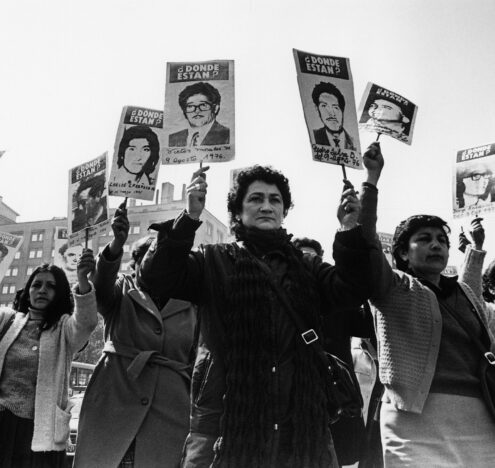In his speech at the UN General Assembly last week, President Joe Biden made his case to world leaders that the United States is reliable, trustworthy, and maybe most important, for the first time in twenty years, not at war.
Indeed, the United States marked an official end to its longest war in August after the withdrawal of the remaining ground troops from Afghanistan. But given the tragedy of the US drone strike in Kabul that killed 10 civilians, including seven children last month (which the Pentagon finally admitted too just recently) has America really closed this chapter? And what do young Americans, who have known nothing but their country at war, think about this?
DO DRONE STRIKES COUNT AS WAR?
A new poll by my organization, the Eurasia Group Foundation, suggests young Americans (18 to 29 year olds) are wary of the post-9/11 counterterrorism policies past presidents have used, and ones President Biden might soon rely more on. Nearly 60% of young Americans reject the use of drone strikes because they are either imprecise and endanger civilians or they stoke anti-American sentiment around the world. While President Biden might put an end to relentless ground wars, he also plans to employ an “over-the-horizon” strategy to respond to terrorist threats. This strategy allows the administration to combat terrorism via aerial surveillance and drone operations launched from bases outside of Afghanistan’s borders.
When President Biden says that “US military power must be our tool of last resort,” does that include drone strikes too? The answer is likely no.
So, when President Biden says that “US military power must be our tool of last resort,” does that include drone strikes too? The answer is likely no. After the attack at Kabul airport on Aug. 27, 2021 that killed 13 US servicemembers and more than 150 Afghans, the Biden administration’s drone policy review was thrown out the door, and the CIA began reconsidering counterterrorism possibilities in the region that they had intended to leave behind with the war’s end.
This isn’t terribly surprising. Past American presidents have increased their use of counterterrorism operations like drone strikes even after decreasing the number of troops on the ground. In 2014, President Barack Obama’s attempt to end the war in Afghanistan by winding down the number of combat troops led to 2,284 missiles and bombs launched from the air in 2015 and 2016. And the civilian death toll from these strikes were high. While the exact number of US strike-related deaths is hard to track due to secrecy and a lack of government oversight, one study estimates that since 2004 between 4,126 and 10,076 civilians were killed in Afghanistan alone.
But it’s not only drone strikes that young Americans are concerned about. More than any generation, they support greater oversight over the use of force. The president should be required to seek approval from Congress before ordering military action overseas, according to 80% of young Americans.
President Biden clearly stated in his address at the UN last week that the United States would “use force if necessary” but only if the mission was “clear,” “achievable,” and “undertaken with the informed consent of the American people.” But are drone strikes and other “over-the-horizon” capabilities included in the president’s definition of force? The data suggest young Americans will be alarmed if airstrikes aren’t included in his dealings with Congress — especially since they are the generation most opposed to an interventionist and militarized US foreign policy.
RELENTLESS DIPLOMACY?
Moving toward a foreign policy based on what President Biden called “relentless diplomacy” is certainly something young Americans would approve since 63% believe the United States should decrease the number of troops around the world, and 80% think the United States should increase its diplomatic efforts globally. President Biden referred to increasing “development aid” efforts and “renewing and defending democracy.” To be sure, young Americans are much more concerned with improving democracy at home than promoting it abroad, though they support humanitarian aid and COVID-19 relief for other countries at a rate of 70% more than they do overseas military assistance.
Like President Biden, young Americans want to usher in an era of US foreign policy not defined by “relentless war.” But, young Americans will likely be watching to see what tools of war he’s actually talking about.
Caroline Gray is a senior researcher at the Eurasia Group Foundation and producer of its podcast None Of The Above.





















